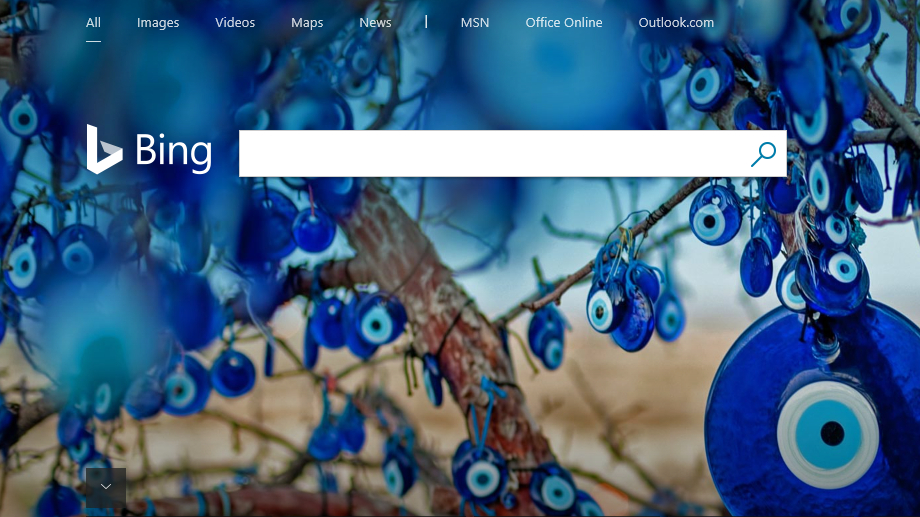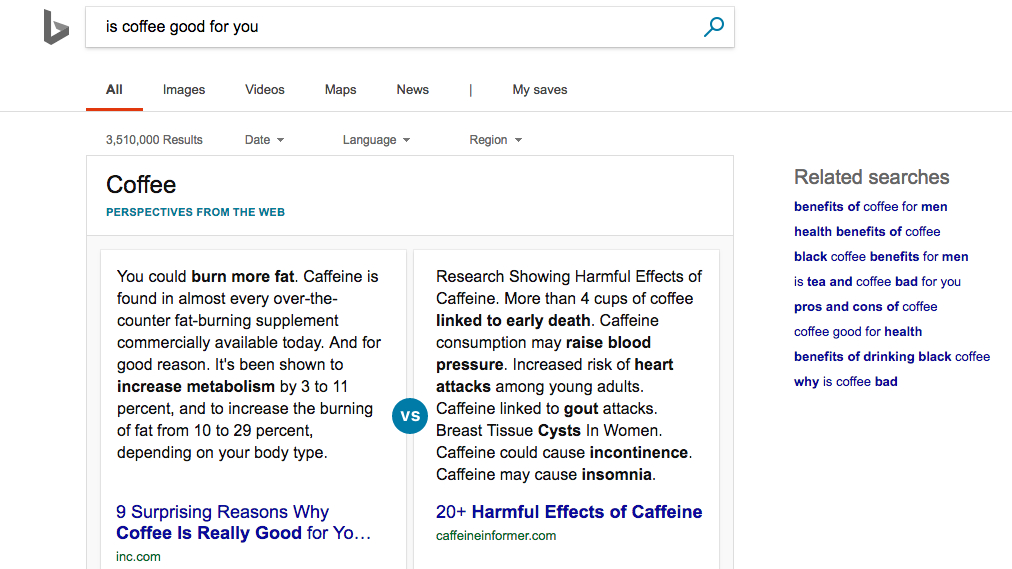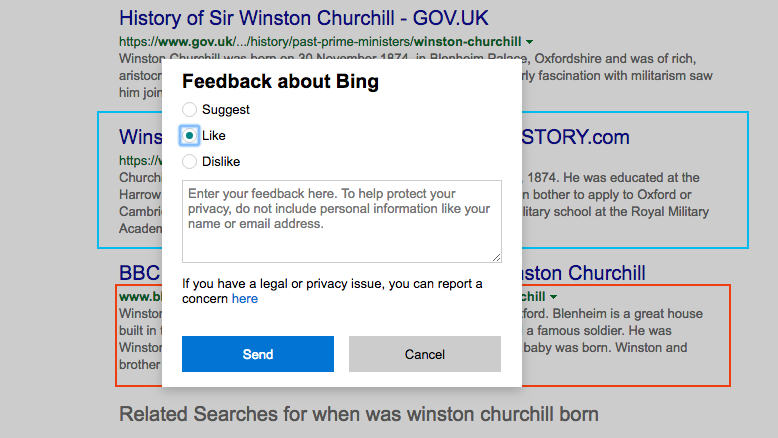Bing: search engines have a responsibility to get people out of their bubbles

Unless we specifically disable them, trackers are constantly watching us move around the web, building up a picture of our interests and biases. Then, algorithms reflect these opinions back at us, presenting us with news, articles and answers that support what we already think.
We're more likely to click things that fit our existing thoughts and interests – but wouldn't objectivity be better?
Jordi Ribas, corporate vice president of AI products at Bing, thinks so Ribas manages Microsoft's search engine from its headquarters in the US, but lived in the UK for three and a half years while he established the Bing team in Europe.
"Obviously as a search engine, our mission is the provide results that are as comprehensive, as objective and as trustworthy as possible," Ribas told TechRadar. "If anything, in a world of fake news and misinformation on the web, I think objectivity in search couldn’t be more important."
Identifying multi-perspective questions
To that end, Bing has launched a new feature called Intelligent Answers. When you enter a question with several valid answers, the search engine summarizes them all in a carousel to give a balanced overview.

"Sometimes there's a single answer for a query, but sometimes we’re able to understand and identify that there are multiple perspectives," said Ribas. "We use advanced AI techniques based on deep learning that essentially read the entire web, then try to find which passage or set of passages are most relevant to that question. With machine reading comprehension, or MRC, we are sometimes able to identify multiple perspectives, where multiple sources converge into the same answer."
Identifying questions with multiple answers involves several techniques, including sentiment analysis, which identifies the opinions expressed in a piece of text – positive, negative or neutral.
Sign up for breaking news, reviews, opinion, top tech deals, and more.
Our mission is the provide results that are as comprehensive, as objective and as trustworthy as possible
Jordi Ribas
"Take a simple query like ‘Is coffee good for you?’" said Ribas. "There are plenty of reputable sources that tell you that there are good reasons for drinking coffee, but there are also some very reputable ones that say the opposite. Deep learning allows us to project multiple queries in the passages to what we call the semantic space and find the matches.
"Then we find that there are documents that cluster separately when you apply the sentiment analysis technique. There’s a set of documents that cluster towards positive reasons for coffee, and some that cluster around negative reasons for coffee. If we find that there are authoritative sources on both, then we realise that this question really deserves a multi-perspective answer. And that’s what we call it."
Bursting the bubble
Although the Intelligent Answers might challenge our expectations, Ribas says the response so far has been very positive.
"I think what’s happening today – because of a lot of the personalised feeds on the web, social media, trying to reinforce some of the same articles and the same information that users click on, people end up living in a bit of a bubble.
I feel like search engines have a responsibility to be more objective
Jordi Ribas
And so if you have certain political views, or you have certain biases, you interact with technology in a certain way, and then the alorithms learn that, and they end up reinforcing the same biases that you have. That’s what’s making society a little bit further apart these days, and it’s helping polarize society. I feel like search engines have a responsibility to be more objective, and ultimately our goal is to provide as trustworthy and objective information as we can."
Ribas says industry professionals are pleased with the results as well. "A lot of the feedback we got from analysts in the US was ‘Aha, finally someone is taking responsibility and taking a step forward, and not just saying the answer is negative because that’s what the algorithm tells us.’
"No, we need to work harder and invest in these more advanced algorithms that help us understand that a given question has multiple perspectives. We do feel that it is our responsibility to provide those perspectives, and kind of get people out of their bubble."
Intelligent Answers aren't influenced by your browsing history either, and don't contain any ads or 'sponsored' articles.
"The ads follow a different process," Ribas said. "In fact, even our ads team is separate from what we call the algorithmic team, and we have a specific location for ads. Usually it’s at the top of the page, as you can see, sometimes on the right rail, and we label them as ads. This part has no signal from ads whatsoever."
Feedback and the future
Intelligent Answers only form a small percentage of search results at the moment, but Ribas and his team are plans to build it up – though not too fast.
The danger of any algorithm that uses AI is that it will make mistakes sometimes.
Jordi Ribas
"We’re still learning a lot, and we’re still trying to improve it, and we also want to be cautious not to go overboard," he said. "We want to make sure that precision is high, because the danger of any algorithm that uses AI, since it’s a machine learning algorithm, is that it will make mistakes sometimes.
"We want to make sure that users have a quick way to tell us. We can take a look at what happened and how we can improve the algorithm. And so that’s why we started small, but you will see more coverage as time goes on."
You can offer feedback on Intelligent Answers (and any other aspect of Bing) using the link at the bottom of the results page, and the option might be made more prominent in future, appearing up alongside the answers themselves.

You might soon see Intelligent Answers in other places too – including Cortana. "If you ask Cortana whether coffee is good for you, I think today Cortana probably doesn’t have an answer because there isn’t just one," Ribas said. "But every time you have a single answer at the top in Bing, that actually flows through Cortana, and so we’re working now so that Cortana would say ‘Actually, there are different perspectives on this. According to this source there a few things that coffee is good for, but according to this other source, if you drink too much coffee it can be harmful for you.’ And so that is definitely is in the works."
Hopefully the slow-but-steady approach means the team won't need too much caffeine to see them through late shifts.

Cat is TechRadar's Homes Editor specializing in kitchen appliances and smart home technology. She's been a tech journalist for 15 years, having worked on print magazines including PC Plus and PC Format, and is a Speciality Coffee Association (SCA) certified barista. Whether you want to invest in some smart lights or pick up a new espresso machine, she's the right person to help.